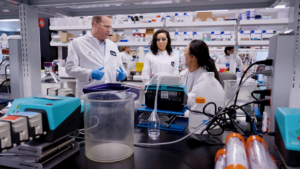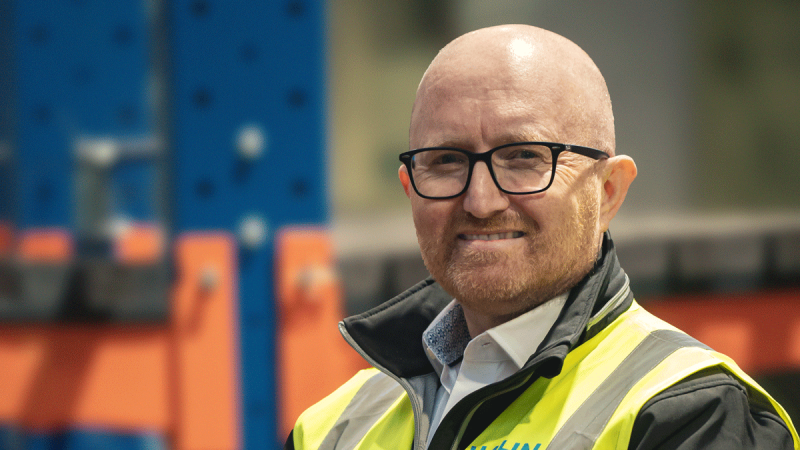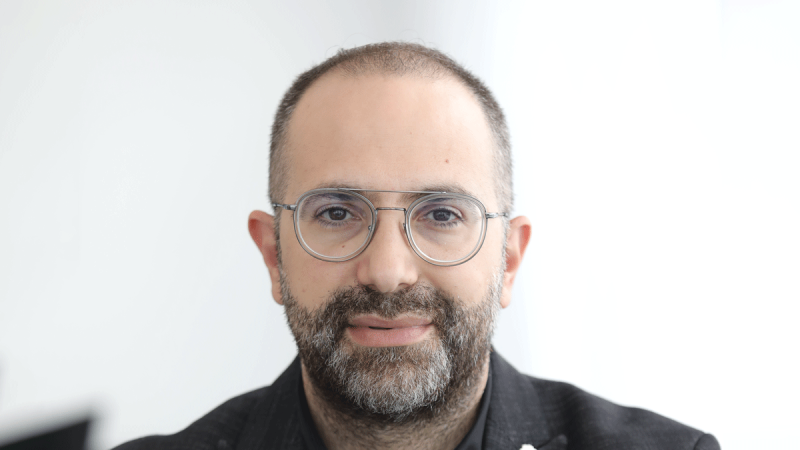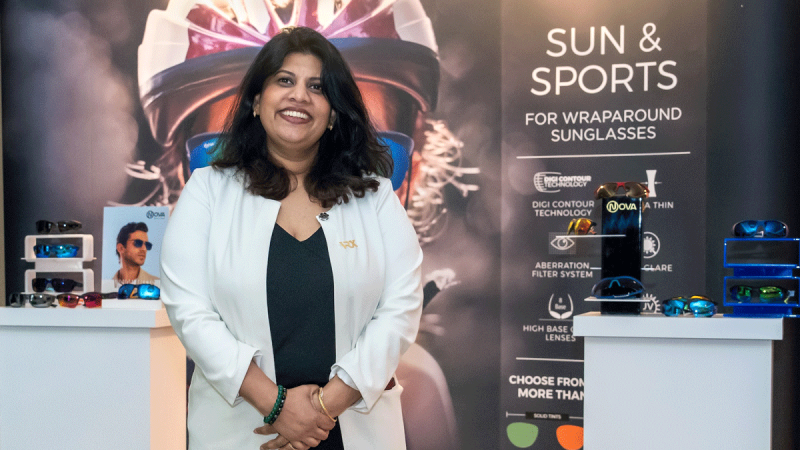Arcturus Therapeutics is a company specialising in medicines and vaccines based on messenger RNA, or mRNA, involved in the development of a host of exciting products developed for a range of purposes.
The firm owns an impressive portfolio of proprietary novel technologies that are considered next-generation in the mRNA and vaccines spaces. When we talk to Arcturus Therapeutics’ President, CEO, and Director of the Board, Joseph E. Payne, MSc, he is particularly excited about one of the firm’s latest developments.
“A recently completed Phase 3 trial compared our newest vaccine technology to the Pfizer COVID-19 vaccine, and we found our next-generation technology generated more antibodies at a much lower dose level,” Payne tells us. “Our reactogenicity profile appears to be favourable with a low rate of some local reactions, such as swelling, erythema, and induration.”
On top of that, Arcturus has clinical data that demonstrates that the immune response from its vaccine is likely to last considerably longer than other vaccines. Combined with the lower dose level and robust cross-neutralization, it is exactly what people want to see in a next-generation mRNA technology.
This next-generation mRNA is called “sa-mRNA” or “Self-Amplifying mRNA” and produces antigens for a far longer duration than conventional mRNA (i.e., not self-amplifying).
“When mRNA is administered into the arm, the mRNA molecule typically produces an antigen for one or two days, and that antigen is important to the vaccine response,” explains Payne. “But our next-generation self-amplifying mRNA produces the antigen for a longer duration of one-to-two weeks rather than days. That means the immune system sees the antigen for a longer time, doing a much better job of memorising it and generating a broader spectrum of antibodies and more of them.
 Giving Vaccines a Boost
Giving Vaccines a Boost
Arcturus Therapeutics is currently putting this technology to use in the development of the ARCT-154 COVID booster vaccine, which is not yet approved for sale. As well as lasting longer despite a lower dosage, the vaccine also boasts a novel and unique design from a delivery perspective.
“These mRNA molecules are not injected as free molecules, but are formulated into spheres called nanoparticles,” Payne tells us. “A collection of compounds called lipids, cover the mRNA molecule, and protect it from degradation. Our LUNAR® lipid nanoparticle delivery technology, combined with a more advanced mRNA, our STARR® (sa-mRNA) molecule, creates an outstanding product.”
The lower dosage is also a huge breakthrough. Other mRNA vaccines require dosages of 30 to 50 micrograms of mRNA vaccine while Arcturus Therapeutics’ new vaccine requires a dosage of only five micrograms.
Arcturus’ partner, Meiji Seiki Pharma Co., Ltd., has completed Phase 3 trials for this vaccine and filed for approval with the Japanese health authority, Pharmaceuticals and Medical Devices Agency (PMDA). The Phase 3 clinical booster data has been published in medRxiv.
The Continuing Pandemic
But while the technology and the data supporting it are exciting, there remains a question over what the demand for the product is. After all, many people, including prominent politicians, have already started talking about the Covid-19 pandemic as a thing of the past.
Payne, however, points to a great deal of data that supports the conclusion that COVID is here to stay.
“A strong majority of immunologists, virologists and even Wall Street analysts argue that COVID is here to stay and will continue to evolve,” Payne insists. “Similar to the way that flu has been around for 1,500 years, and every year people still go in for a flu shot because the virus is constantly evolving.”
Payne says that Covid-19 is likely to follow a similar trend. With only 57 million people in the US receiving booster vaccines, Payne believes that this autumn we are likely to see a strong COVID season in the USA and elsewhere and will coincide with new COVID variants of concern to emerge.
“If you get the common cold and you beat it, you do not think ‘I have beat the common cold so now I never have to worry about getting a cold again’,” Payne explains. “But the common cold is a virus very similar to COVID. People will have to learn, possibly the hard way, that COVID is here to stay so they should seriously consider getting an annual vaccination. I think that is where the future is headed.”
Despite current public opinion, exacerbated by the way COVID vaccines have become politicised in places like the US, Payne is optimistic about adoption.
“Over 160 million people in the US received a flu shot this season. Those 160 million people, when given a choice, selected the option of getting vaccinated to protect themselves against flu,” Payne points out. “This group of people will likely want to protect themselves from COVID in the same manner. That is the general market.”
At the same time, Japan has a culture of acceptance and familiarity with vaccines not seen in the US and has administered 75 million doses of flu booster shot and over 80 million COVID booster shots.
 The Age of mRNA
The Age of mRNA
But COVID is far from the only application of mRNA. Arcturus Therapeutics is working on treatments for patients with cystic fibrosis, addressing the 10% of sufferers that are not able to use typical therapeutics. The company is also pioneering an investigational mRNA therapeutic to treat OTC deficiency – a rare liver disease.
“We fully understand the impact of what happens when mRNA does its job, replacing missing or dysfunctional proteins,” Payne says. “If you can safely and effectively deliver an mRNA molecule to where it needs to be, you can disrupt an entire disease space. It is not just an incremental technology.”
At the same time, the COVID pandemic has raised the profile of mRNA solutions, driving an injection of talent into the sector.
“Ten years ago, nobody even knew what mRNA was, but now everyone has been injected with it. The familiarity is there. There is really strong interest because of the pandemic, so we have no problem drawing from a large pool of interested scientists,” Payne says. “It definitely helps that we are working on the next-generation technologies in this sector. Scientists prefer to work on innovative cutting-edge technology, so we don’t have challenges recruiting outstanding scientists. We are based in San Diego which has approximately 400 to 500 biotech companies, an impressive pool of talent to draw from. We are also building a presence in Boston, which is known for later-stage clinical development companies.”
All in all, Payne has good reason to be optimistic about the future.
“Very few biotechnology companies get to experience this kind of scientific success. We are going to enjoy this next chapter of our story as we continue to build on our validated technology platform,” Payne says.
Arcturus is partnering with global biotechnology company CSL Seqirus, one of the largest influenza vaccine providers in the world, to develop and bring Arcturus’s vaccine technologies to market. Hopefully, successes from that program can further fund its therapeutics platform.
“What’s exciting about the platform is mRNA’s almost limitless potential,” Payne tells us. “RNA molecules are beautiful, they are perfect. You just have to get those RNA molecules to the right organ, the right cells, whether they are injected or inhaled. We have the fundamental technologies to deliver mRNA safely and effectively to where they need to be. The future is extraordinarily bright.”






